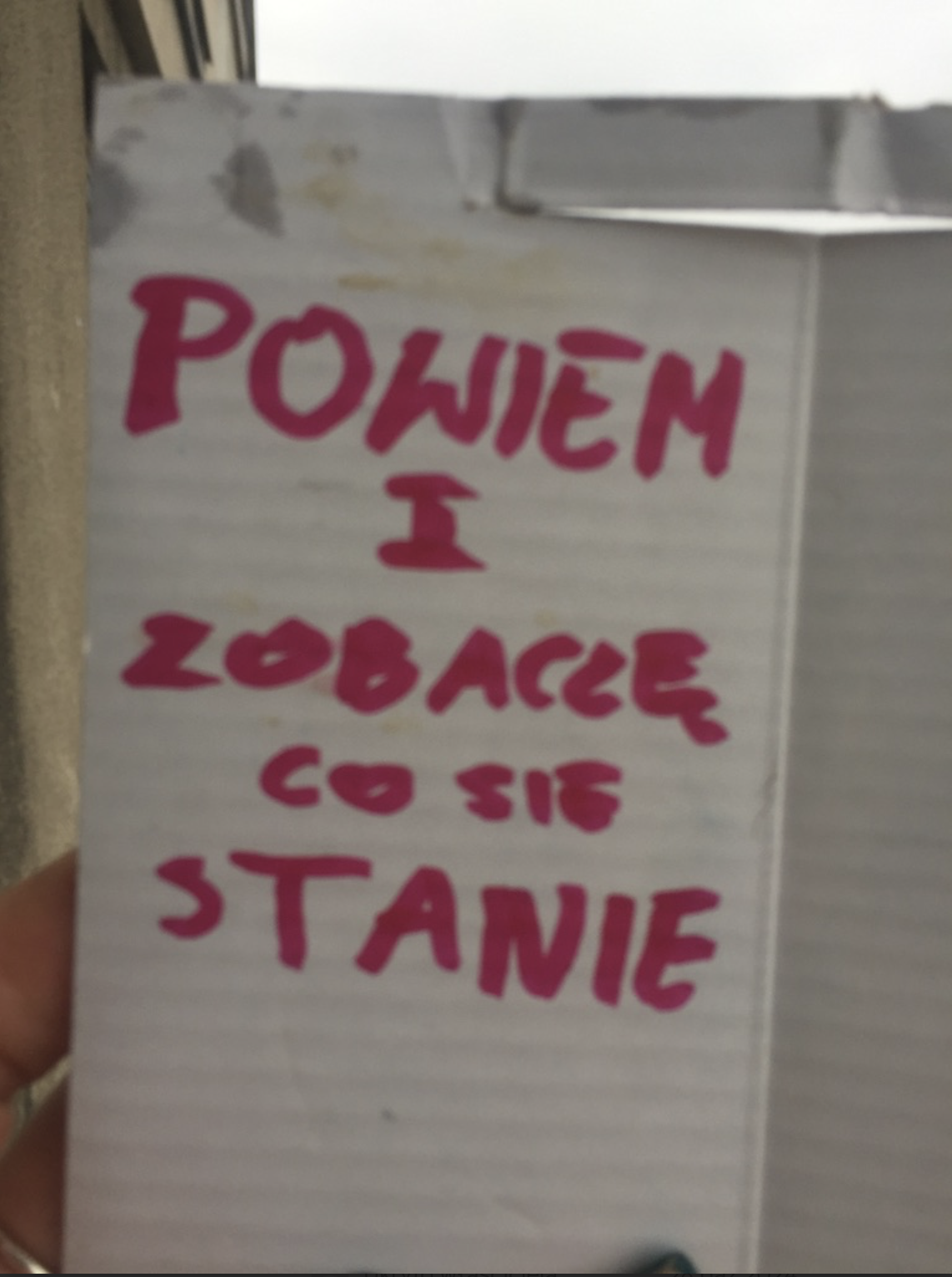Reproductive rights
From the work on the poster for the play "I'll say it and see what happens", Material from the archives of TERAZ POLIŻ
Looking through a folder of initial sketches for a poster of the play called ‘I’ll just say it and see what happens’, we saw many photographic variations on the title handwritten on a torn piece of cardboard. Ultimately, the play’s poster is just the title on a cardboard with a torn edge. An individual trace of writing and involving the hand in drawing a unique line. The slogans written on the cardboard with a marker are an emblem of the ongoing protests against stricter abortion laws, the largest public demonstrations in Poland after 1989. During that time, we took what was at hand – moving boxes, shopping boxes, and parcel boxes which we had because of ordering things through the pandemic. We would politicise household items. One banner read: “I had to take the cat’s cardboard box!”

The Polish protests became an inspiration for a performance about the abortion experience, which the artists initially entitled ‘Broszka’ (en. Brooch). The local context complemented the inspiration from two events in 1971, when the cover of the German magazine ‘Stern’ featured photographs of women talking about their experience of abortion, and the French ‘Le Nouvel Observateur’ published a manifesto written by Simone de Beauvoir of 343 women who had abortions and demanded punishment for themselves. The French gesture of feminist disobedience was called “The Manifesto of the 343 Sluts” by misogynists. Abortion as an object of political conflict and, as Agata Chałupnik wrote, the core of ‘perhaps the last metaphysical dispute of modern times’ naturally became a focus for TERAZ POLIŻ.
The project, like the earlier ‘Cunning Stunts’, began with a research collaboration – the artists published on their website and social media questionnaires prepared by Dr Alicja Długołęcka, a pedagogue and sex educator, addressed to both women who experienced abortion, and to those who didn’t. The mapping of the broad spectrum of affects, beliefs and memories associated with this experience was treated by the artists as the starting point for further work on the performance. Together with director Gosia Wdowik, they also had consultations with the Abortion Dream Team. ‘I’ll just say it and see what happens’ has become a part of the long, diverse history of the portrayal of abortion in Polish performing arts, proving the discursive potential of theatre. A potential that TERAZ POLIŻ is keen to involve, revitalise and transform.

